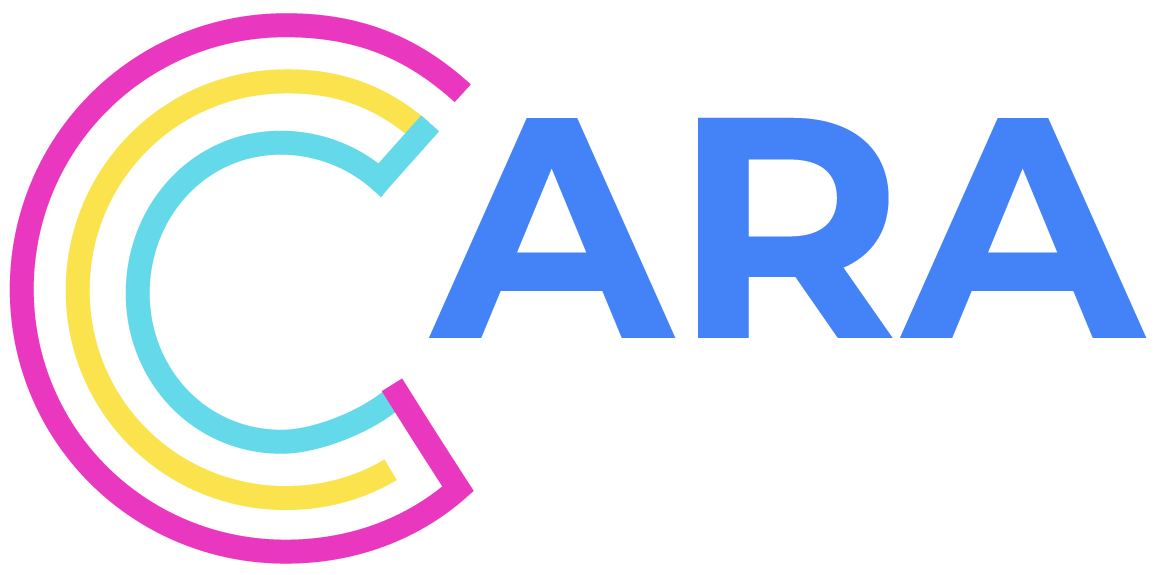CARA Method
The CARA Method integrates three components - reading, play, and self-esteem - for the most effective learning experience.
The CARA method is based on the most organic way to learn – through play – and prioritizes an emotionally safe space.
The CARA method was born out of the fact that the brain can’t learn when it’s in a state of stress.
Performance anxiety, fear of failure, worry, low self-esteem all create a stress response in the brain: Fight or flight goes on, and the ability to learn something new shuts off.
So how do we turn the ability to learn back on? We calm the brain through safety, joy, and play.
We have to take the very real fear of letters, words, and making a mistake out of the equation, and let a child know that it’s safe to feel their feelings, try the next word, and move towards reading anyway.
Learning
Does your child hate to read
even though they love being read to?
Do they guess instead of sounding out words
even though you know they can?
Reading is the foundation of learning. It paves the way for all other academic skills and is a portal to a lifetime of curiosity.
It can be painful when it doesn’t gel automatically, but it can also be a source of great joy once it does.
If you’ve ever tried to help your child with their elementary school homework, you know that teaching foundational skills can be deceivingly tough. The good news: We understand the complexity of reading so that you don’t have to.
At CARA, we use the top two multisensory, research-validated reading methodologies – Lindamood-Bell and Orton-Gillingham – to support three foundational literacy skills: reading, comprehension, and writing. We observe how your child’s brain works, their learning style, personality, and frustration threshold and develop an individualized plan to scaffold the right building blocks at the right time so that we can build your child’s independence from the ground up.
We support students with reading and anxiety challenges, dyslexia, dysgraphia, and ADHD. We understand how to strengthen cognitive processing for sounds and letters, how to build confident decoding (sounding out) and encoding (spelling), how to anchor sight words in your child’s visual memory, and how to integrate sight word recognition and sounding out for smooth, fluent reading.
Your child can read, spell, comprehend, and write. They just need the right scaffolding and support along the way. Get ready for little flashlights under the covers at night!
Play
Does your child struggle to focus long enough to learn something new? Do they dread the learning process because it's "boring" and they "just don't want to!"?
Play is the most natural way for a child to learn.
And for a child that’s unfocused or refusing, it’s the vehicle through which learning *must* take place.
Imagine if your child could focus on reading the way he can when he’s building with LEGOs.
At CARA, we’re passionate about your child being happily engaged in the learning process. That’s why we use play to change your child’s emotional experience and allow him to work in his flow state – the state of consciousness where everything else falls away and he’s mindfully focused on the perfect level of challenge.
Play soothes performance anxiety. It creates a fun and safe space for risk taking, something your child is much less likely to do in a pressurized academic setting. When we practice reading skills through play, learning happens painlessly. Your child happily becomes willing to work at higher levels because he’s having so much fun – and really wants to win that game!
Goodbye struggle, hello faster results.
We also understand that children who struggle to focus are often kinesthetic learners – they require movement to learn. Our play-based strategies allow your child to solidify the building blocks of reading while moving their bodies. Yes, even online. We switch games frequently to work with their attention span, instead of against it. The end result? Your child learns faster and before you know it, poof! He’s a confident and happy reader. But wait, how did that happen? We were just playing 😉
Self-Esteem
Does your child shut down and lose all sense of self worth at one mistake?
Self-esteem determines whether we give up or keep trying. Whether we’re hard on ourselves or cheer ourselves on.
Self-esteem determines whether or not your child keeps trying.
Your child’s emotional experience matters. Not only because they’re little humans with big feelings, but because a child that feels good learns more quickly than one that doesn’t.
At CARA, we foster a growth mindset by encouraging a child to witness their own learning process. We help them collect evidence of their success until they go from “I can’t” to “With practice, I did!”.
Most importantly, we normalize the emotional experience of learning something new. Let’s be honest, sometimes practicing something new feels frustrating. That’s totally normal!
Self-acceptance is key, yet kids can be so hard on themselves at one mistake. And it makes sense that as the parent, you wish you could just take their frustration away. But we understand that the adult voices a child hears around them is what determines their inner experience. That’s why we model acceptance of the learning process – yes, even the frustration. It’s okay that it feels hard right now, it’s new!
When your child’s process is greeted with acceptance, compassion, and emotional validation, they feel seen and heard. And a child that feels seen and heard doesn’t have to act out. They increase their willingness to try because they feel like the adults around them already beleive in their potential. And that’s a beautiful thing.
Want your child to love themselves through their mistakes? We do too. That’s why we practice being there for them unconditionally as they learn.

